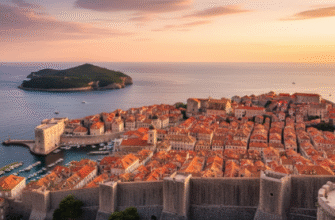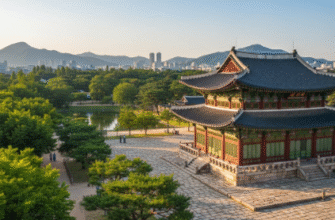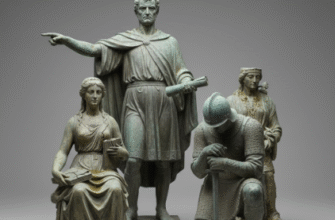Imagine your dinner plate tonight. Now, take away the pepper, the cinnamon, the chili, the paprika, and the ginger. What you’re left with is a meal that, for much of human history, was the bland and monotonous reality. The story of how we went from that dull plate to the explosion of flavors we enjoy today is more than a culinary tale; it’s a story of greed, adventure, conquest, and the creation of the modern globalized world. It all started with tiny, dried bits of plants that were once worth more than gold.
The Ancient World’s Treasure
Long before spices were common kitchen staples, they were the exclusive treasures of emperors, pharaohs, and priests. The ancient Egyptians used cinnamon and cassia, imported from faraway lands, not just for flavor but in their sacred embalming rituals. In ancient Rome, black pepper was the ultimate status symbol. The demand was so immense that it was stored in the imperial treasuries alongside gold and silver. When Alaric the Visigoth sacked Rome in 410 AD, part of his ransom demand included a staggering 3,000 pounds of pepper.
For centuries, the source of these precious commodities was a jealously guarded secret. Arab merchants spun incredible tales to protect their monopoly on the trade routes. They told European buyers that cinnamon sticks were collected from the nests of giant, ferocious birds that had to be fought off, and that pepper grew in fields guarded by fiery serpents. These stories served a dual purpose: they deterred rivals from seeking the source and justified the sky-high prices.
For nearly a thousand years, the city of Venice held a virtual monopoly on the European side of the spice trade. By controlling the maritime routes from the Levant, where they met the Arab caravans, Venice became one of the wealthiest and most powerful city-states in the world. This economic dominance directly funded the flourishing of art and architecture during the Italian Renaissance.
A New World for Nutmeg
By the late 15th century, European kingdoms were tired of paying exorbitant prices to the Venetian and Arab middlemen. The desire for a direct sea route to the Indies—the source of these spices—became a driving obsession. This quest, more than anything else, fueled the Age of Discovery. Christopher Columbus sailed west hoping to find a shortcut to the pepper and cloves of Asia, accidentally stumbling upon the Americas instead. But it was Vasco da Gama of Portugal who truly changed the world when he successfully rounded Africa and reached the coast of India in 1498. He had broken the monopoly.
What followed was not a peaceful exchange of goods but a brutal, century-long war for control. The Portuguese used their superior naval power to seize key ports and dominate the Indian Ocean. They were soon challenged by a new, even more ruthless player: the Dutch East India Company (VOC). A corporate behemoth with its own army and navy, the VOC was determined to control the source of the most valuable spices: nutmeg and mace, which grew only on a tiny cluster of islands in modern-day Indonesia known as the Banda Islands, or the Spice Islands.
The Price of Flavor
The Dutch campaign to secure their monopoly was terrifyingly brutal. They systematically depopulated the Banda Islands, executing or enslaving nearly the entire native population to seize control of the nutmeg groves. They went to extreme lengths to maintain control, even dipping every nutmeg in lime to render it infertile, ensuring no one could grow the precious trees elsewhere. For a time, they succeeded. A pound of nutmeg bought for pennies on the islands could be sold for a fortune in Amsterdam, making the VOC the richest corporation the world had ever seen.
The intense rivalry over spices had bizarre geopolitical consequences. In 1667, after years of conflict, the English and Dutch signed the Treaty of Breda. As part of the deal, the English gave the Dutch their claim on Run, a small nutmeg-producing island in the Banda archipelago. In return, the Dutch gave England a swampy, fur-trading outpost in North America they considered far less valuable: an island called Manhattan.
Eventually, the monopolies were broken. A daring French botanist and colonial administrator named Pierre Poivre (whose name literally means “Peter Pepper”) managed to smuggle nutmeg and clove seedlings out of the Spice Islands in the late 18th century. He successfully cultivated them on the French colonies of Mauritius and Réunion. Soon, the British were planting them in Grenada and Zanzibar. As the supply increased, the prices plummeted. The once-divine spices, which had launched a thousand ships and toppled empires, finally became accessible to everyone.
Today, we sprinkle pepper on our food without a second thought. We bake with cinnamon and nutmeg as if they were mundane ingredients. Yet, locked within each tiny seed and strip of bark is a dramatic history of global transformation. These humble flavorings redrew the map of the world, created vast fortunes, sparked wars, and connected cultures in ways that had never been imagined. They are a potent reminder that the most powerful forces of change often come in the smallest of packages.








